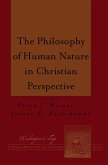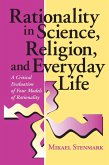In his compelling philosophical treatise, "Is Life Worth Living Without Immortality?", M. M. Mangasarian delves deep into the existential queries surrounding the significance of life in a mortal framework. Written with a prose that balances lucidity and depth, Mangasarian explores themes of mortality, purpose, and the human condition, challenging readers to reflect critically on the values we ascribe to our ephemeral existence. The book is rich with references to both Western and Eastern philosophical traditions, stepping into dialogues with thinkers such as Nietzsche and Eastern sages, thereby positioning itself within a broader literary context of existential inquiry and ethical deliberation. M. M. Mangasarian was a philosopher and a prominent figure in the early 20th-century American freethought movement. His astute observations on religion and spirituality, along with his strong advocacy for reason and skepticism, have undoubtedly shaped the contemplative backbone of this work. Mangasarian's diverse background-including his experiences as an immigrant and a critic of dogma-infuses the text with a unique blend of personal and universal perspectives, as he wrestles with the implications of human finitude in the quest for meaning. For readers navigating questions of existence, "Is Life Worth Living Without Immortality?" is a thought-provoking journey that invites introspection and philosophical dialogue. Mangasarian's articulate synthesis of ideas and his challenge to dogmatic beliefs makes this work a vital addition to the libraries of those interested in philosophy, ethics, and the very essence of what it means to live.
Dieser Download kann aus rechtlichen Gründen nur mit Rechnungsadresse in A, B, BG, CY, CZ, D, DK, EW, FIN, F, GR, H, IRL, I, LT, L, LR, M, NL, PL, P, R, S, SLO, SK ausgeliefert werden.









